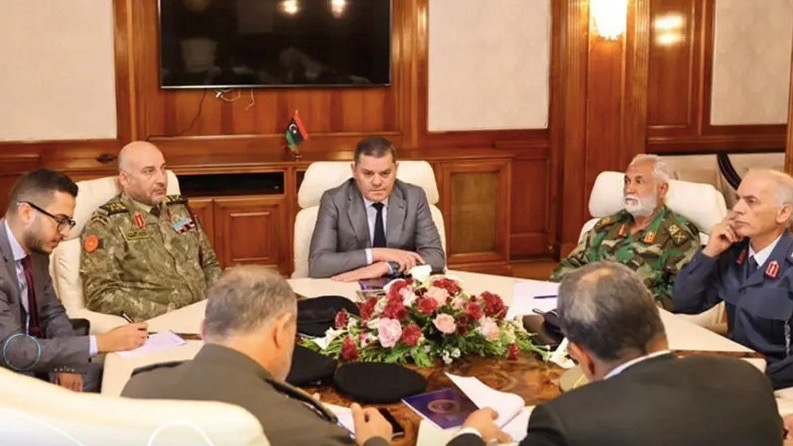The UN-led peace process in Libya is facing its toughest challenge now with two different governments claiming legitimacy and vying to control power in Tripoli. On Tuesday, April 11, Fathi Bhashagha, head of the so-called Government of National Stability in Libya, expressed hope that he will soon take full control of the government in Tripoli “by peaceful means” from the Government of National Unity (GNU) headed by prime minister Abdul Hamid Dbeibah.
He claimed that by refusing to step down even after being removed last month by the House of Representative (HoR) – the Libyan parliament based in eastern city of Tobruk – Dbeibah is “disgracefully seeking to deepen the divisions” in the country. He also accused Dbeibah of prolonging the “security chaos and financial corruption,” Alwasat reported.
Bhashagha was the interior minister in the Dbeibah-led government which was formed in March 2021 at the end of a UN-led peace initiative called the Libyan Political Dialogue Forum (LPDF) aimed at ending the decade-long war in the country. The interim government had the mandate to conduct national elections in December 2021, which it failed to do. Following its failure to conduct the elections, Libya’s HoR voted to sack Dbeibah and elected a new government led by Bhashagha.
However, Dbeibah refused to step down and continues to run the government claiming that his government is recognized by the UN.
Threat of resumption of hostilities
The three-member Presidential Council headed by Mohamed al-Menfil elected along with the GNU has refused to take sides and is trying to mediate with the HoR to prevent the country from once again slipping into war.
The chances of renewed clashes between the western and eastern forces in the country have increased following the split in the 5+5 Joint Military Commission which was created to coordinate the armed forces in the country.
Five of its eastern members announced the suspension of their participation in the commission on Saturday demanding Dbeibah’s resignation. They also asked the Libyan National Army (LNA) led by Khalifa Haftar, which controls the majority of the eastern territories, to block the road linking the country’s east with the west and the immediate suspension of all oil exports.
Reacting to the announcement made by the eastern members of the Joint Military Commission, Dbeibah, who also holds the defense ministry, asked the commanders to stay away from “politics” by saying that their job is rather a technical one.
Uncertainty over elections continues
This escalation of tensions among the political class in the war-ravaged country is despite Stephanie Williams, the Libya advisor to UN secretary general, expressing the hope that the of talks between Aguila Saleh, the speaker of the HoR, and the breakaway parliamentarians who call themselves the High Council of State (HCS), to resolve the issues related to the two governments and the constitutional basis for fresh elections in the country.
Williams refused to state the UN’s position on the two governments, claiming that it will not adopt a policy of recognizing one government over the other. This was a major change in the UN’s policy as following the talks of sacking Dbeibah in February, spokesperson Stéphane Dujarric appeared to be supporting Dbeibah by questioning the vote in the HoR.
Williams’ move came after 76 members of the HoR issued a joint statement in March reiterating their opposition to her earlier proposal to form a committee to create new legal basis for elections in the country. They had demanded that the election be held according to the 12th constitutional amendment approved in February forming a 24-member committee to draft a new constitution for the country.
The present Libyan parliament which was elected in the 2014 elections was divided after the failure of the UN-led peace process between the HoR and the HCS in 2015. The latter remained loyal to the UN-recognized Government of National Accord (GNA) led by Fayez al-Sarraj. The GNA was dissolved following the LPDF and the formation of GNU last year.
Libya, once Africa’s richest and most stable country, plunged into a decade-long war following the NATO-led invasion in 2011 which killed president Muammar Gadaffi and divided the country into various parts controlled by different warlords, each supported by a different set of foreign players. The UN was finally successful in negotiating a ceasefire in November 2020 and a new interim government was created in 2021. Though the ceasefire has held so far, failure of the interim government to hold national elections in December last year has created fresh troubles.





